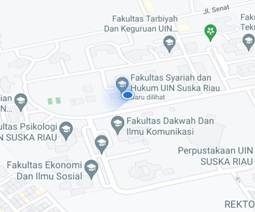DETERMINATION OF JUSTICE COLLABORATOR IN THE INDONESIAN CRIMINAL JUSTICE SYSTEM: ANALYSIS OF SNG DISTRICT COURT DECISION NUMBER 79/PID.B/2024
Abstract
This study analyzes the procedures for designating a justice collaborator within Indonesia’s criminal justice system, using the case of *Sang District Court Decision No. 79/Pid.B/2024* involving convict Muhammad Ramdanu as a case study. The justice collaborator mechanism serves as a critical instrument to overcome evidentiary challenges in prosecuting organized crimes, particularly when conventional evidence is insufficient. The research employs a normative-juridical approach with qualitative analysis of legal frameworks, including Supreme Court Circular Letter (SEMA) No. 4 of 2011, Law No. 31 of 2014, LPSK Regulation No. 2 of 2020 (Witness and Victim Protection Agency), and Satjipto Rahardjo’s progressive legal theory. The findings reveal that the designation process for a justice collaborator involves a written application, verification of formal and material requirements, review by the LPSK, and recommendations for protective measures. Muhammad Ramdanu was deemed eligible as a justice collaborator due to his role as a non-principal perpetrator in the murders of Tuti Suhartini and Amalia Mustika Ratu, his significant informational contributions to uncovering the mastermind (Yosep Hidayah), and credible threats to his safety. This designation aligns with progressive legal principles that emphasize legal flexibility to achieve substantive justice. Implications include reduced sentencing and physical protection for justice collaborators. However, the study identifies regulatory gaps requiring clarification of "non-principal perpetrator" criteria and improved mitigation of retaliation risks. The findings recommend holistic policy integration between legal instruments and enforcement practices to ensure the efficacy of the justice collaborator mechanism without compromising fair trial principles and human rights.
Full Text:
PDFReferences
Amirson, M, Mohd. Y. D., Itoni, Napogos, E., & Saragih, G. M. (2023). Kedudukan Justice Collabolator (JC) Dalam Sistem Peradilan Pidana Di Indonesia. Jurnal Pendidikan Dan Konseling (JPDK), 5(2), 248–253. https://doi.org/10.31004/jpdk.v5i2.12692
Barama, M. (2016). MODEL SISTEM PERADILAN PIDANA DALAM PERKEMBANGAN. Jurnal Ilmu Hukum, 3, 8–17. http://repo.unsrat.ac.id/id/eprint/1304
Giyono, U. (2020). KAJIAN KRITIS HUBUNGAN HUKUM DAN MORAL DALAM PARADIGMA POSITIVISME HUKUM. Jurnal YUSTITIA, 21. https://doi.org/10.53712/yustitia.v21i2.992
Karnadi, W. T., & Mahmud, A. (2025). Urgensi Pengaturan Justice Collaborator dalam Tindak Pidana Pembunuhan Berencana di Indonesia. Bandung Conference Series: Law Studies, Vol. 5, No. 1, 17–26. https://doi.org/10.29313/bcss.v5i1.15889
Kautsar, I. al, & Muhammad, D. W. (2022). Sistem Hukum Modern Lawrance M. Friedman: Budaya Hukum dan Perubahan Sosial Masyarakat dari Industrial ke Digital. Jurnal Sapientia et Virtus, 7(2), 84. https://doi.org/10.37477/sev.v7i2.358
Peraturan Bersama Menteri Hukum Dan Hak Asasi Manusia Republik Indonesia Jaksa Agung Republik Indonesia Kepala Kepolisian Negara Republik Indonesia Komisi Pemberantasan Korupsi Republik Indonesia Ketua Lembaga Perlindungan Saksi dan Korban Republik Indonesia, (2011).
Peraturan LPSK Nomor 2 Tahun 2020 Tentang Permohonan Perlindungan Saksi dan atau Korban, (2020).
Pontoh, J. V. L., Vera Momuat, Y., & Worang, G. J. G. (2023). Eksistensi Justice Collaborator dalam Tindak Pidana Pembunuhan Berencana Berdasarkan Hukum Pidana di Indonesia. UNES Law Review, 6(2). https://doi.org/10.31933/unesrev.v6i2
Sholecha, E. M., Saiful, A., Yunika, S., Hariyanto, & Unsil, N. (2023). Justice Collaborator’s Position and Function on Witness Protection’s Rights as a Suspect from the Perspective of Criminal Law in Indonesia. Volksgeist: Jurnal Ilmu Hukum Dan Konstitusi, 6(1), 131–143. https://doi.org/10.24090/volksgeist.v6i1.7246
Siregar, M. (2024). Teori Hukum Progresif dalam Konsep Negara Hukum Indonesia. Muhammadiyah Law Review, Vol. 8 No. 2. https://doi.org/dx.doi.org/10.24127/mlr.v8i2.3567
Sugiarto, T., Purwanto, Sunarlin, E., Setyagama, A., & Susilo, W. (2023). Pembunuhan Berencana dalam Pasal 340 KUHP dalam Perspektif Justice Colaborator. Al-Qanun: Jurnal Pemikiran Dan Pembaharuan Hukum Islam, 26(1)(1), 121–136. https://doi.org/10.15642/alqanun.2023.26.1.121-136
Surat Edaran Mahkamah Agung Tahun 2011, (2011).
Undang-undang Nomor 8 Tahun 1981 tentang Hukum Acara Pidana, (1981).
Undang-undang Nomor 13 Tahun 2006 tentang Perlindungan Saksi dan Korban, (2006).
Undang-undang Nomor 31 Tahun 2014 tentang Perubahan atas Undang-Undang Nomor 13 Tahun 2006 Tentang Perlindungan Saksi dan Korban, (2014).
Wahyuni, S., Fauzi, E., & Salsabila, K. (2023). The Position and Urgency of the Justice Collaborator in the Crime of Shooting by Richard Eliezer (Ruling Number: 798/Pid. B/2022/PN. Jkt. Sel). Jurnal Ilmiah Ekotrans & Erudisi, 3(2), 53–62. https://doi.org/10.69989/xdzz1p20
DOI: http://dx.doi.org/10.24014/je.v7i1.37304
Refbacks
- There are currently no refbacks.

Eksekusi: Journal Of Law
E-ISSN: 2686-5866 | P-ISSN: 2714-5271
Published By:
Department of Law, Faculty of Syari'ah and Law, Sultan Syarif Kasim State Islamic University, Riau-Indonesia.
Mailing Address:
Jl. H.R Soebrantas Km. 15 No. 155 Kelurahan Simpang Baru Kecamatan Tuah Madani, Pekanbaru, Riau-Indonesia.
email: eksekusi.journaloflaw@gmail.com
Indexed By:
Eksekusi:Journal Of Law is licensed under a Creative Commons Attribution 4.0 International License.

2.jpg)











.jpg)
.png)
.jpg)
.jpg)
2.png)
